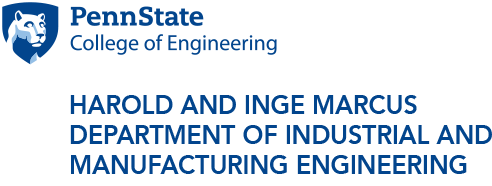
Industrial engineering alumna Jane Snowdon was one of 50 Society of Women Engineers (SWE) members and leaders invited to ring the NASDAQ Opening Bell.
Jane Snowdon: A role model for women in engineering
10/4/2018
UNIVERSITY PARK, Pa. — Jane L. Snowdon, a distinguished alumna who graduated in 1981 with a bachelor’s degree in industrial engineering (IE) from Penn State, is a role model for women in engineering and a thought leader in both cognitive computing applied to health care and sustainable and innovative design.
Snowdon developed a passion for mathematics while growing up around Penn State, where her father worked as a professor of physics and engineering. In addition to her father being a professor, Snowdon said she made the decision to attend Penn State because the engineering program was well respected and one of the oldest programs of its kind.
After earning her undergraduate degree, she went on to acquire a master’s degree in industrial and operations engineering from the University of Michigan and a doctoral degree in industrial and systems engineering from Georgia Tech.
Snowdon currently serves as the associate chief health officer for IBM Watson Health and is based at the IBM Thomas J. Watson Research Center in Yorktown Heights, New York, where she promotes global research efforts to advance data and clinical evidence studies for Watson Health cognitive solutions.
In August, she was invited to be one of the 50 members and leaders of the Society of Women Engineers (SWE) to ring the NASDAQ Opening Bell.
“It was a real honor and thrill to be a part of this event,” Snowdon said. “Being able to meet other women scientists and engineers and be part of a broadcast from Nasdaq’s MarketSite Studio at 4 Times Square and home to ‘Squawk Box’ was a great experience.”
Snowdon has been involved with SWE since her undergraduate days at Penn State. She started out as a student member and eventually became the vice president of the chapter.
“In those days [1977 to 1981] only about 15 percent of Penn State’s engineering students and the engineering industry as a whole were made up of women, so it was nice to be part of an organization with other women to learn about technical careers,” said Snowdon.
Since then, she has found that SWE has been a great way for her to make friends, build her network and mentor the next generation of women engineers.
“I think that there are tremendous opportunities for both men and women in STEM and it’s a very exciting time to be in these fields,” Snowdon said.
She said there is more visibility now to helping women achieve their goals and aspirations in engineering than there was in the past.
One of the main reasons Snowdon decided to pursue industrial engineering is because she loves working with people. She said that if you understand the underlying math and physics concepts, you can apply them to a new industry domain.
Snowdon has been with IBM for more than thirty-five years and currently works in the company’s health care sector to manage efforts to design and implement clinical studies, promote research efforts in evidence, and enable global democratization of data and evidence-based practices to transform health care. The combination of big data, cognitive computing and technology are transforming health care and life sciences. Her list of prior accomplishments and leadership positions in engineering is remarkable.
Previously, she served as chief innovation officer at IBM US Federal, in Washington D.C., where she worked with IBM’s federal clients and systems integrator partners to drive innovation strategy and define offerings that address client mission requirements with IBM products, services and IBM Research’s technology investments. While in D.C., Snowdon also served as director of the IBM Federal Cloud Innovation Center, member of the Intelligence and National Security Alliance Council on Technology and Innovation, co-chair of the Cyber Security Education and Workforce Development Working Group with the Department of Homeland Security and National Institute of Standards and Technology, and a member of the Advisory Board for the Center of Innovation and Entrepreneurship at George Mason University.
While at IBM, Snowdon served as IBM’s principal investigator for the Energy Innovation Hub proposal led by Penn State for Energy Efficient Buildings. Out of 40 different proposals, Penn State’s was awarded the contract, followed by $129 million over five years by the U.S. Department of Energy.
As an advocate for the environment, Snowdon feels a strong connection to the work she’s done to help create more sustainable structures.
“IBM defined a strategy in smarter buildings and smarter energy for a smarter planet. We want to help the planet become more sustainable,” she said.
She worked with building operators and the Economic Development Corporation in partnership with Columbia, CUNY and NYU for research collaboration to help address the energy challenges in New York City. More than 1,000 schools, with children in grades K through 12, were modeled and a prioritized set of recommendations were made for updates and renovations as a result.
When asked what some of her biggest challenges have been, Snowdon reflected on her early career with IBM Research.
“After six months of working on a prototype, a customer did not like the user interface,” she said. “However, in the end it was some of the best insight we received and the final product turned out amazing, so that just goes to show how sometimes these setbacks can help inform and turn into successful products.”
In contrast, she said that one of her biggest achievements was when she was part of the IBM Research strategy technical team and got promoted to go Washington as IBM’s first chief innovation officer.
Snowdon also reflected on some of her fondest memories from her time as an undergraduate student at Penn State.
“Some of my best memories were the comradery that I felt as part of the student body in IE,” she said.
She was involved in a variety of different student engineering groups as an undergraduate, where she made lasting friendships. For her capstone project, she worked in a textile factory near Wilkes Barre, Pennsylvania, which was one of her first opportunities to work in an industrial setting where her schooling could be put into practice.
Outside of work, Snowdon enjoys hiking, swimming and going to spin class. She also loves to travel, which her job gives her the opportunity to do a lot of. She said some of her most memorable travel experiences have been in Greece, Australia and New Zealand.
Her biggest piece of advice for current engineering students is “to pick something that you love to do and that you are the go-to person for.”
“It’s important to create a brand around your passion. Define your brand and be happy with your pursuit,” she said.
Snowdon’s wealth of experience and knowledge in engineering make her an outstanding role model for women in STEM. The College of Engineering is proud to have played a part in her journey to such a successful career.




